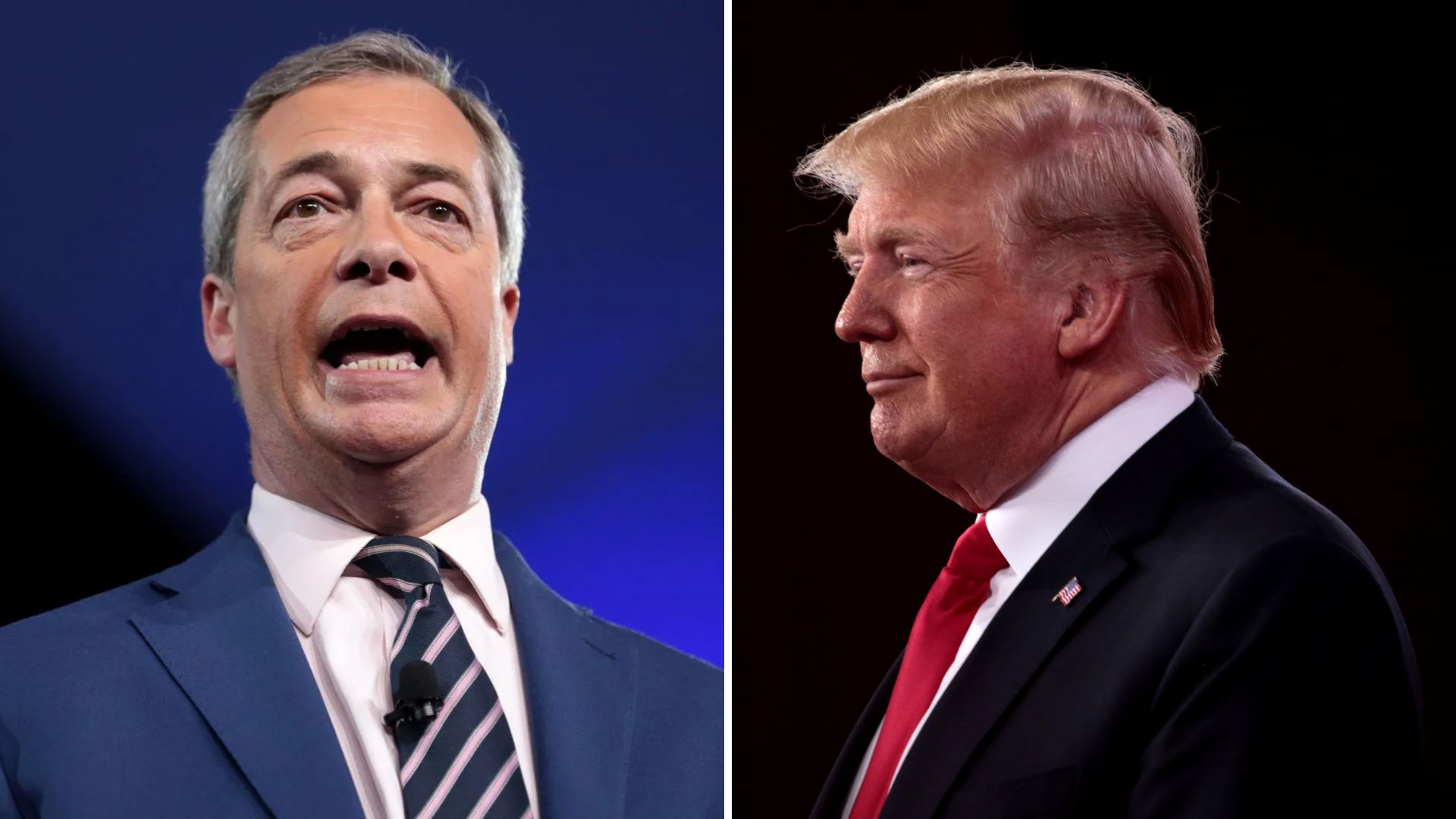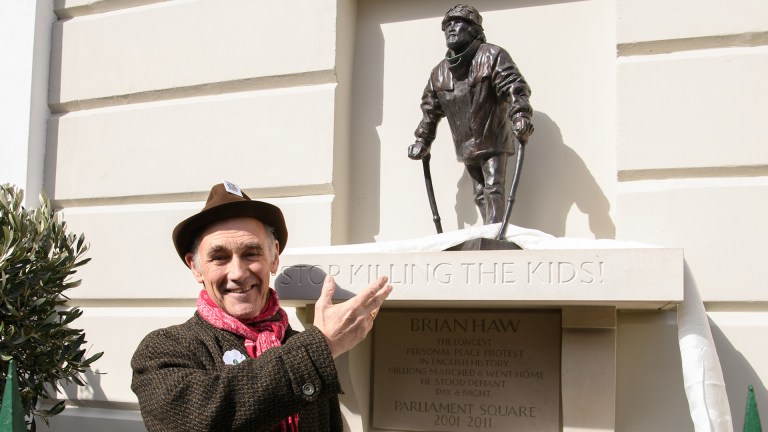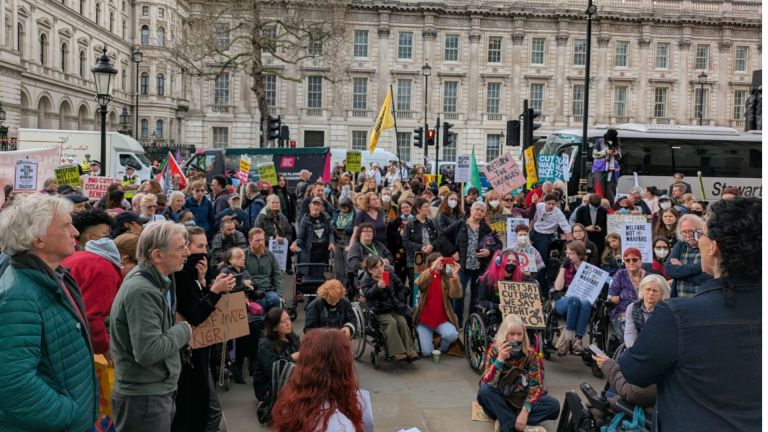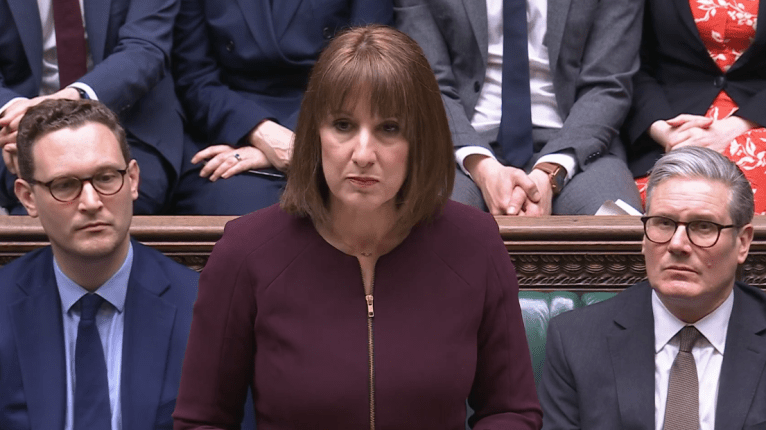“American conditions are not the same as British conditions,” explained Paul Mason, author of How to Stop Fascism. “But what you saw, for example, in the riots in August, is that we’ve got a minority of people in Britain who think and are beginning to act like Trump.”
In August, far-right agitators took to the streets of UK towns, fuelled by anti-immigration rhetoric. Donald Trump leaned into similar sentiments during all three of his presidential campaigns. The former reality TV star warned that immigrants “poison the blood of the country”, accused refugees of eating people’s pets and promised the largest domestic deportation operation in US history.
Such racialised scapegoating resonates in a climate of economic insecurity, Mason told Big Issue. Improving living standards is more important than growth alone.
“America had high growth, but inflation ate into wages,” he said. “Economic insecurity is so acute in America that everyone feels that everyone else is their enemy… Trump won because he harnessed the economic discontent.”
“What Labour needs to do is, number one, deliver wellbeing and security to people. It’s no good saying growth is higher if people don’t feel it.”
According to a Pew Research Centre poll taken before the election, 93% of Trump supporters said that the economy was important to their vote, compared to 68% of Harris supporters. Immigration (82%) was the second most important issue.
Advertising helps fund Big Issue’s mission to end poverty
Economic issues and the cost of living crisis matter to British voters, too. According to YouGov polling, the latter was the “most important issue” to Brits at the July election.
These issues delivered Starmer to Downing Street. Equally, a failure to tackle them could be his downfall – and deliver votes to the right. “There are 89 Labour MPs with Reform second in their constituencies,” Mason added.
Like Trump, Farage and Reform UK capitalise on anti-immigrant sentiment. Some 78% of Reform voters believe that “multiculturalism has made the UK worse”. Thus far, the Tories have not fully embraced Reform – a reluctance that has acted like a “firewall” to the ascendancy of Trump-like politics in the UK, Mason said.
But could Trump’s win could embolden right-wing Conservatives to commandeer their party? Tim Bale, professor of politics at Queen Mary University of London, fears so.
“What will worry Tory moderates is that some of their more right-wing colleagues will inevitably look across the Atlantic and convince themselves that the Trump playbook – which revolves around polarising the electorate by demonising minorities and outsiders, and telling out and out lies about one’s opponents – is the one to follow if the party is to win in 2028/9,” he said.
“Even those who might disagree will be worried that unless they themselves follow that course then Nigel Farage will, allowing Reform to outflank them.”
Advertising helps fund Big Issue’s mission to end poverty
“Labour, I suspect, will be even more determined to steer away from anything that its opponents can label woke or pro-immigration or pro-EU.”
A focus on “getting real wages rising and public services working by the time of the next election” will be Labour’s best hope, Bale added.
But Labour cannot “leave [the topic of immigration] to the right wing”, Mason said – even if it has to engage in difficult conversations. “We need to work out a good, liberal, humane immigration policy… the left cannot shy away from difficult topics.”
For all the comparison, it is worth remembering: The UK is not the US. Our political system operates differently, and culture wars do not run down the same fault lines. Abortion, for example, is not as politically contentious in Britain. And Brits are far more united on the need for climate action – according to a More in Common poll, there is not a single UK constituency where concern about climate change falls below 50% of the electorate. Another More in Common poll suggests that UK voters would have elected Kamala Harris over Donald Trump at a ratio of two-to-one.
But if economic insecurity continues to bite, there is no question that the right wing will benefit. An anti-fascist programme will require investment in public services and meaningful increases to wages – something the Labour government has made some progress on. But more radical solutions are needed.
“Trump’s win should act as a warning to the Labour government: If we fail to address deep-rooted inequality and the cost of living crisis, we risk leaving a void that can be filled by the far-right,” Nadia Whittome, Labour MP, posted on X. “When people feel ignored, they look for alternatives.”
Advertising helps fund Big Issue’s mission to end poverty
There is still, Mason adds, hope for the UK. But people must feel that their lives are materially better.
“We’ve got to be hopeful that we can avoid the fate of America,” he said. “We’ll have to do our best to support those within [America] who are fighting the right.
“But if there’s one thing you should be thankful for when you wake up tomorrow morning, is that you live here and not there.”
Do you have a story to tell or opinions to share about this? Get in touch and tell us more. This Christmas, you can make a lasting change on a vendor’s life. Buy a magazine from your local vendor in the street every week. If you can’t reach them, buy a Vendor Support Kit.










